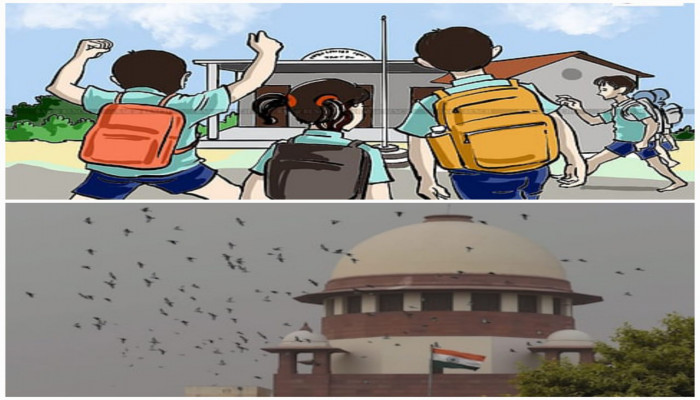‘Ensure no discrimination in education for Rohingya refugees’: SC to Centre, Delhi Government
- In Reports
- 06:12 PM, Feb 12, 2025
- Myind Staff
In response to a PIL filed by NGO Rohingya Human Rights Initiative seeking government benefits and school admissions for Rohingya refugees, the Supreme Court stated that education must be provided to all children without discrimination. However, it emphasised the need first to verify the residential status of Rohingya families.
A bench comprising Justices Surya Kant and N. Kotiswar Singh was hearing the petition. It called for school admissions and government benefits for Rohingya refugee families without requiring Aadhaar cards or considering their citizenship status.
The Court previously stated that the "right to education will flow" from the residential status of Rohingya refugee families and asked the petitioner to provide details about their living conditions. In a separate case seeking similar relief, the Court noted that the approach to delivering education would depend on where the families reside. If the families live in camps and their children are admitted to regular schools, parents or guardians may also request to move out of the camps.
During today's hearing, Senior Advocate Colin Gonsalves, representing the petitioners, submitted the information requested by the Court. The report included the number of Rohingya refugee families residing in Shaheen Bagh, Kalindi Kunj and Khajuri Khas. However, Justice Kant was not satisfied and instructed the petitioners to provide a detailed list of families, information about the properties and proof confirming their residence in those areas.
Gonsalves requested additional time to complete the necessary steps and stated that all the families in question were registered with the United Nations High Commissioner for Refugees (UNHCR). Justice Kant responded, "Then it makes things easier for you; there must be a registration number. You have to give the colony-wise list. We will see what can be done".
Before concluding the proceedings, Gonsalves pointed out that in a previous case, the Union of India had acknowledged that Rohingyas have the right to access public schools and hospitals. He said, "In the 3 petitions before the court, this issue arose as to whether they (Rohingyas) should be admitted into schools and hospitals. Now those orders are there. (Solicitor General) Tushar Mehta said that we will not discriminate, we will give the Rohingyas whatever...".
Upon hearing this, Justice Kant agreed that education must be free from discrimination and that all children should be given equal access.
The judge responded, "In terms of education, there is no question of discrimination. Every child will get admission. But we just want to first of all find out that where are they living, in what capacity they are living, and then what can be the effective mechanism to ensure that the education is provided to them".
When Gonsalves requested the Court also to address the issue of access to public hospitals and healthcare, Justice Kant stated that the Court was willing to consider it. "You have raised the issue of education, but we don't mind taking up the issue of health also, but we must first satisfy that how are they (Rohingyas) living, where are they living, and is it in the public domain that these families are living. This information will help us".
In a separate petition requesting school admissions for Rohingya refugee children, the Court has asked the petitioner, an NGO, to submit an affidavit clarifying whether the refugees are residing in makeshift camps or settled in regular residential areas.







Comments